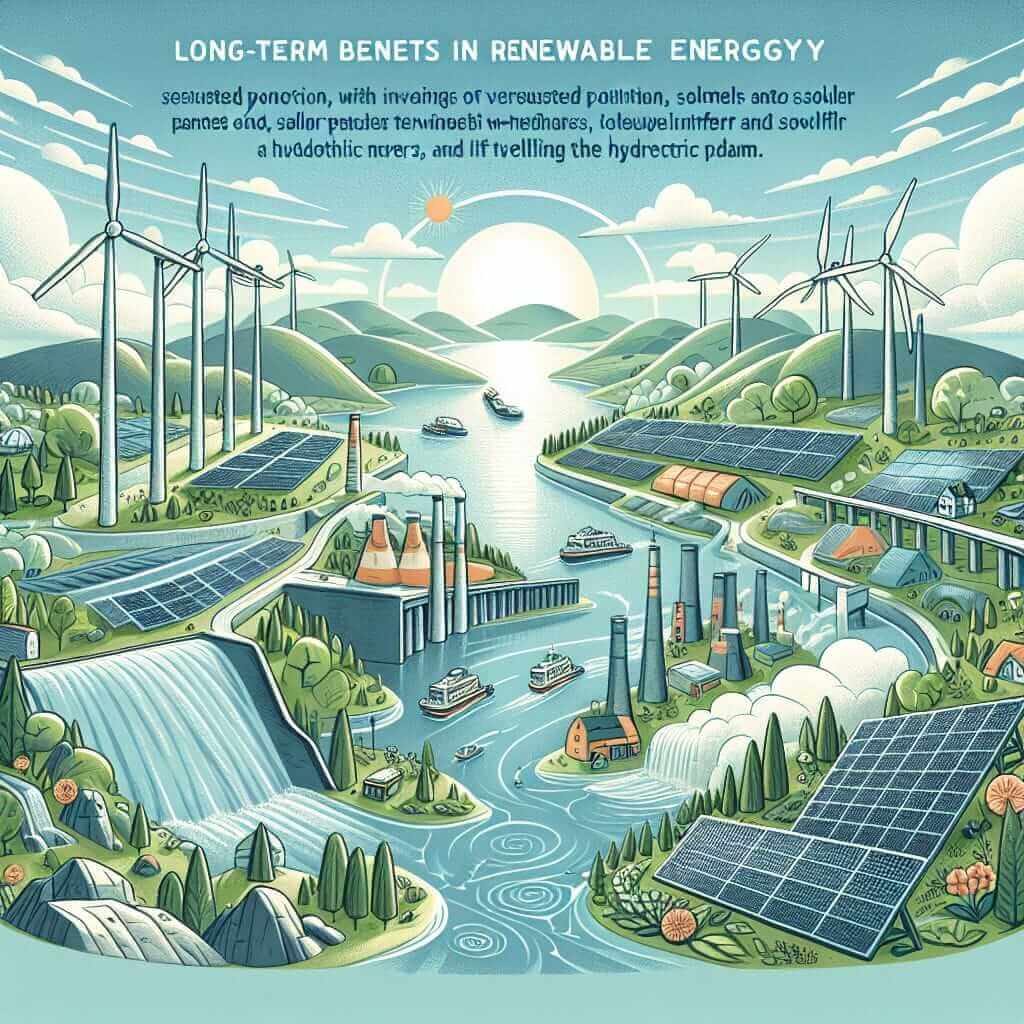“In the long run” is a versatile phrase that frequently appears in IELTS writing and speaking, often catching test-takers off guard. Understanding its nuances and mastering its application can significantly enhance your vocabulary score and contribute to a more natural and sophisticated language style.
Let’s look at some examples of how “in the long run” can be incorporated into different sections of the IELTS exam:
Speaking Part 3:
Examiner: Do you think people are becoming more environmentally conscious?
Candidate: “Absolutely, and in the long run, that’s crucial for protecting our planet. While some individuals might not prioritize sustainability now, the increasing awareness about climate change will eventually lead to widespread behavioral change.”
Writing Task 2:
“Some people believe that the government should invest heavily in public transportation to reduce pollution. Others argue that this is too expensive and inconvenient. Discuss both views and give your opinion.”
“While investing in public transport might seem financially burdensome in the short term, in the long run, it offers a sustainable solution to traffic congestion and environmental concerns.”
Understanding “In the Long Run”
Meaning and Usage
“In the long run” is an idiom signifying “over a long period of time,” “eventually,” or “ultimately.” It suggests that while something might not be immediately apparent, it will become evident or have an impact after a considerable duration.
Frequency in IELTS
This phrase appears frequently in IELTS, particularly in tasks requiring you to:
- Discuss future trends or consequences.
- Analyze long-term impacts of decisions or actions.
- Contrast short-term costs with long-term benefits.
Mastering “In the Long Run” for IELTS
Formula and Grammatical Insights
“In the long run” functions as an adverbial phrase and typically appears:
- At the beginning of a sentence, followed by a comma:
- “In the long run, investing in renewable energy will prove more cost-effective.”
- In the middle of a sentence:
- “Though challenging initially, learning a new language can be incredibly rewarding in the long run.”
- At the end of a sentence:
- “Short-term profits should not overshadow the importance of ethical practices in the long run.”

Applying “In the Long Run” in IELTS
Writing Task 2
- Discussing economic policies: “In the long run, a well-educated workforce will contribute significantly to a nation’s economic growth.”
- Addressing environmental issues: “While using plastic bags might seem convenient, in the long run, it leads to devastating environmental consequences.”
Speaking Part 3
- Talking about technological advancements: “In the long run, artificial intelligence has the potential to revolutionize healthcare and improve our quality of life.”
- Discussing societal changes: “In the long run, I believe that increased globalization will foster greater cultural understanding and tolerance.”
Elevating Your Language Use
To achieve higher band scores, consider these strategies:
- Use synonyms: Instead of repeating “in the long run,” alternate with phrases like “eventually,” “ultimately,” “in the end,” or “over time.”
- Combine with other time expressions: For greater precision, combine with phrases like “in the foreseeable future,” “in the decades to come,” or “over the next century.”
- Employ a range of grammatical structures: Demonstrate your command of complex sentences by incorporating “in the long run” into different sentence positions and structures.
Common Errors and How to Avoid Them
- Incorrect placement of commas: Ensure you use commas appropriately when “in the long run” appears at the beginning or middle of a sentence.
- Repetition: Avoid overusing the phrase. Vary your language with synonyms to demonstrate a wider vocabulary range.
- Confusing with “in the long term”: While similar, “in the long term” is a more formal expression often used in business or academic contexts. Be mindful of the context when choosing between the two.
Conclusion
Mastering the use of “in the long run” can significantly enhance your IELTS performance. By understanding its meaning, applications, and potential pitfalls, you can confidently incorporate this phrase into your writing and speaking, showcasing a more sophisticated grasp of the English language. Remember to practice using “in the long run” in various contexts and sentence structures to solidify your understanding and maximize your IELTS score.